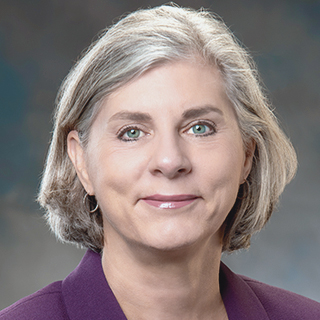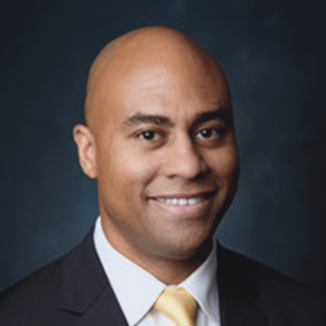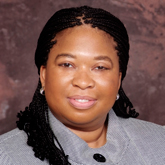Recent national events have propelled many organizations to launch new initiatives designed to improve diversity in the workplace and for others to increase spending with minority suppliers.
Over the past 20 years, HealthTrust’s nationally recognized Supplier Diversity Program has grown from 18 contracts with $23.4 million in spend to 160 contracts with more than $320 million in diversity spend. Between 2014 and 2018 alone, member spend on diverse contracts increased by 50%.
Successful initiatives

Several new initiatives in the past few years have contributed to the program’s ongoing success, note Janet McCain, Diversity Program Director, and Joey Dickson, Chief Diversity Officer and AVP of Purchased Services & Diversity Contracting.
One of the most robust programs is the Supplier Diversity Council, launched just two years ago. Composed of 11 integrated delivery systems, the Council is designed to identify best practices that can be disseminated throughout HealthTrust’s membership, communicate sourcing and savings opportunities with diverse business enterprises, and better align HealthTrust’s supplier diversity goals with those of its members. Each Council member is unique in terms of its diversity supplier initiatives. Some have well-established programs, while others are just getting started.

The COVID pandemic has not slowed the Council’s momentum, Dickson says. “We’ve built a strong connection with the group. No one holds back any opinions about what to propose or judges other members’ diversity supplier initiatives.”
The Council held its third annual Supplier Diversity Symposium in February, just before COVID upended the world. “The room was filled,” McCain says, with 74 diverse suppliers and eight Council members attending. “It was a great way for Council members to get to know suppliers they might not have met.” The two-day event was a mix of formal presentations, including one on succession planning for family-owned businesses and another on implicit bias and informal networking.
“We want to make sure our members understand what type of bias may exist in their role as a buyer for these products and services, and make them more self-aware of how they may respond or interact with diverse suppliers,” explains McCain. “And we want our diverse suppliers to also recognize biases may exist, and that they can effectively communicate with a potential customer to ultimately partner for success.”
Dickson adds, “The timing is right, from a community responsibility standpoint, to expand or start supplier diversity programs.”
In early July, HealthTrust launched a Tier 2 program to expand and augment the impact of the Supplier Diversity Program. The goal is to have its largest and strategic prime suppliers report spend with their own diverse supplier partners. “While many diverse suppliers do not yet have the capacity to service HealthTrust and our large integrated networks on their own, they certainly can contribute goods and services under a Tier 2 agreement with our larger and/or prime suppliers,” explains McCain. “That can help members and us understand that even though there may not be a direct relationship with a diverse supplier, members are giving their business to an organization that is indirectly helping a diverse supplier,” she adds.
The Council also launched its first Best Practice Guide, soon to be available to members. It provides practical advice for starting a supplier diversity initiative. The Guide provides a “how-to” playbook for any member interested in creating their own supplier diversity program, including important questions to answer, ideas for goal-setting, advice for how to build executive support and types of diverse suppliers to consider. “Everyone should be able to pull something useful out of it,” McCain explains.
Another initiative is Supplier Spotlights at the monthly (now virtual) Council meetings. At least two suppliers in the diversity program have an opportunity to highlight the value, savings, quality and new products they offer.
Dickson and McCain are not letting COVID interrupt their efforts. They are planning virtual workshops for noncontracted suppliers to educate them about group purchasing organizations and distributors and how to work within the system, McCain says.
Overall, she adds, “We are seeing more support for diverse suppliers.”
Members making it happen
CHRISTUS Health and Methodist Le Bonheur Healthcare are two members showing their commitment to the supplier diversity effort.
CHRISTUS Health

HealthTrust member CHRISTUS Health has a long history of related initiatives through its enterprise Supplier Diversity Program. “The Supplier Diversity Program validates our commitment to the CHRISTUS Health core values and supports our mission,” says Contracting Manager Timothy Martin, who has run the program since 2011.
“We are intentional in our procurement practices by spending with minority, women, veteran and small business enterprises,” he says, “because we believe it’s the right thing to do.” The system has exceeded its targeted goals every year since 2012. In the past three years, it averaged over 10% of total trackable spend with diverse suppliers.
“The advantage of having a dedicated resource to manage the Supplier Diversity Program makes all the difference and is recognized as an industry best practice,” Martin explains. Among his efforts are leading and coordinating vendor fairs, reporting the program’s progress with monthly dashboards, and developing and educating diverse suppliers on navigating the health system.
Martin strongly recommends other organizations embrace a supplier diversity program. “It enhances the supply chain practices by bringing greater innovation and driving greater value through cost reductions, competitive contract terms and conditions, and improved services from diverse businesses that are nimble,” he says.
Methodist Le Bonheur Healthcare

The diversity supplier program at Methodist Le Bonheur Healthcare (MLH) in Memphis, Tennessee, doesn’t have a formal name. “That’s because it’s woven into the fabric of the system’s daily operations,” explains Cynthia Bardwell, Director of Strategic Sourcing and Procurement.

Larry Fogarty, Vice President of Supply Chain Management adds, “At MLH, we understand supporting minority and women-owned businesses is important for the success of our organization because we realize that we can only be as successful as the communities in which we operate.”
While diverse spending has always been important to MLH, the health system began monitoring and tracking it in 1999. When it built a state-of-the-art addition at its university hospital, project managers met with the general contractor early in the planning stages to set a percentage of spending that would go to minority businesses. Today, at least 20% of the system’s supplier spending goes to minority- and women-owned business enterprises (MWBEs), Fogarty adds.
Methodist Le Bonheur works closely with two local organizations, Mid-South Minority Business Council Continuum and the Memphis Medical District Collaborative, as well as the HealthTrust Supplier Diversity Council, to learn about and contract with new suppliers. Its own diversity council reviews goals and key performance metrics on supplier diversity spending.
“Over the last five years, MLH spent more than $156 million with MWBE businesses,” Bardwell says. Between 2010 and 2019, annual spending grew from $40 million to more than $52 million. “This year, we expect to exceed $53 million.”
For more information on the Supplier Diversity Program, contact Janet McCain at janet.mccain@healthtrustpg.com.
Share Email Q4 2020





